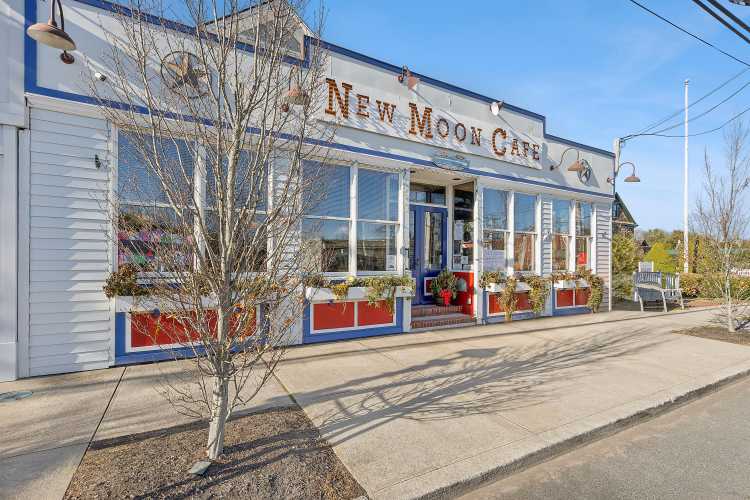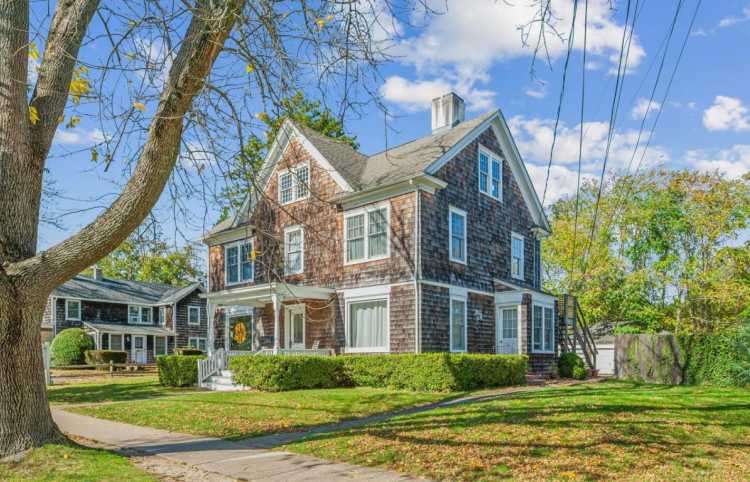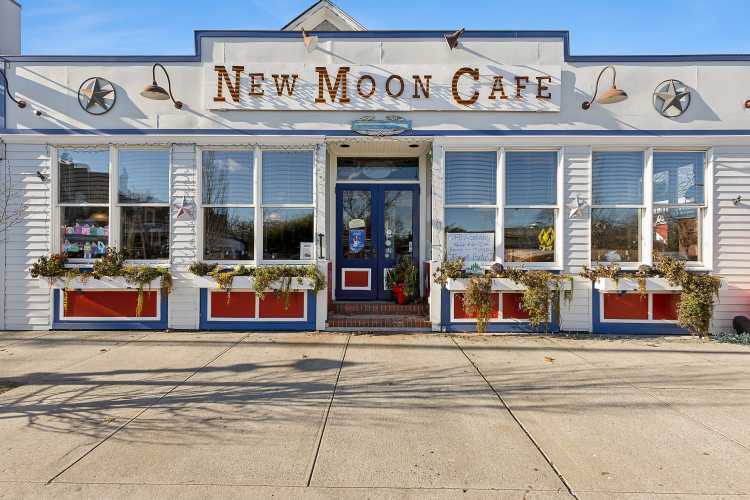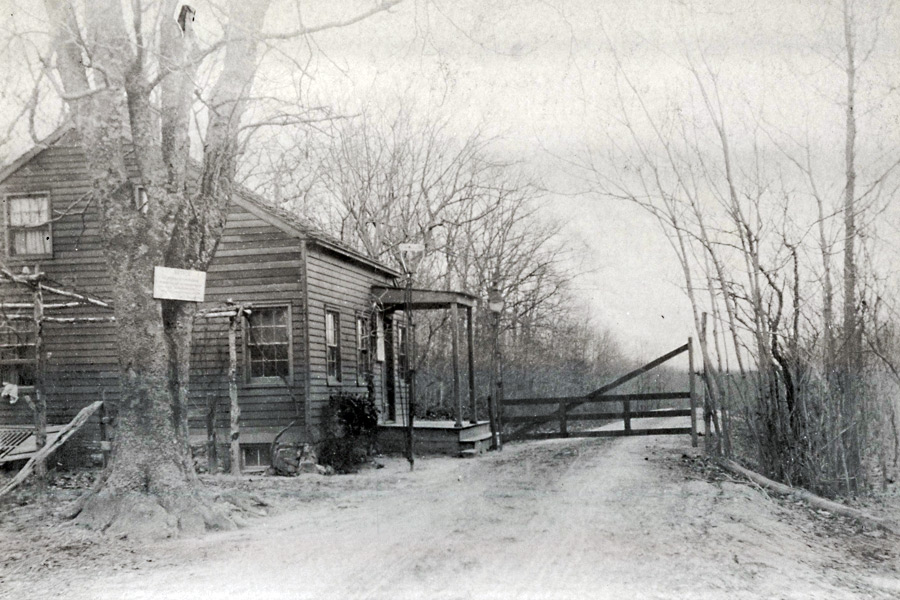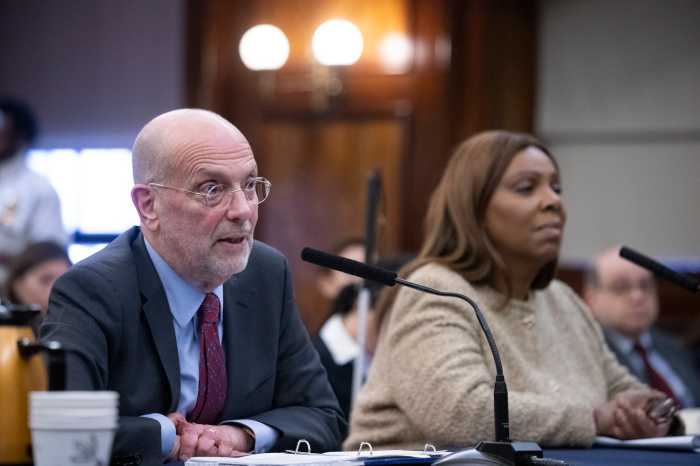The Southold Town Board voted unanimously at their meeting earlier this month to approve a waiver submitted by the owner of a former Capital One Bank property in Mattituck from a moratorium on the new development of hotels.
The year-long moratorium first went into effect in June 2024 after concerns about the impact such development would have on Southold’s infrastructure and environment. The moratorium would allow the town time to complete a zoning update. The board extended the halt on hotels for a second year this past May. However, the Cardinale family, owners of 9025 Main Road, an 11.83-acre parcel with the former 77,000-square-foot bank building on it, requested an exemption from the moratorium in February to develop a hotel within the building’s existing footprint. Their argument, in part, is that the property standing vacant, as it has since 2012, is a wasted source of potential revenue for the town.
“This was not an easy decision,” Councilwoman Anne Smith said during the July 8 meeting. “But it was an important process and anytime we put a moratorium in place that prevents people from doing things like building, we need to have this kind of clause and this is a good example of why.”
The moratorium includes a section detailing the conditions under which an entity experiencing “unnecessary hardship” as a result of the moratorium may be granted relief. As outlined in the board’s decision, council members deemed that the waiver application met all four criteria for exemption from the moratorium. The board referenced an assessment put forth by the petitioners by JLL Value and Risk Advisory Group that concluded hotel use “is the only option that will allow the petitioners to realize a ‘reasonable return’ for the parcel.”
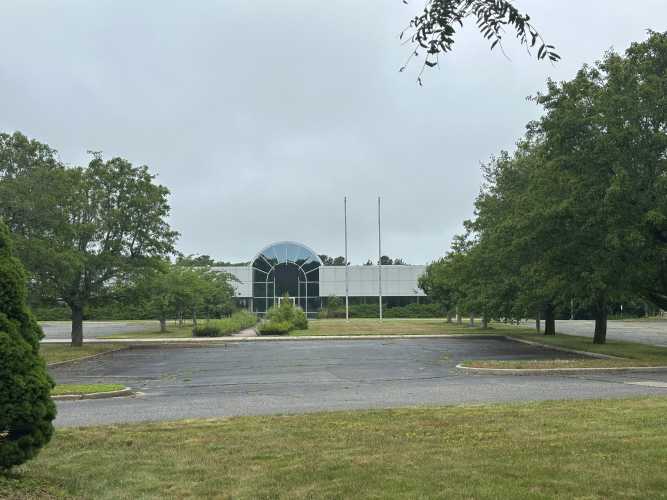
Additionally, the town’s report assessed that ownership established that the parcel is uniquely affected by the moratorium as there are not enough entities in the area requiring office space of the size provided by the existing building, that “the essential character of this neighborhood will not be negatively affected” by the exemption and that “the hardship is imposed and not self-created.”
“We were hopeful because we believe we had a unique situation in that the property does meet the requirements of the exemption,” said John Armentano, an attorney with Farrell Fritz who represented the owners of 9025 Main Road. “The number one factor being it is unmarketable for any other use…and it’s a good reuse of the property, we’re not taking raw land and converting it to that.”
The land comprises two tax parcels – a 7.467-acre lot that houses the existing building and parking lots as well as an undeveloped 4.361-acre lot. The building had been used as a bank facility and banking call center before Alan Cardinale purchased it in 2014, after a public auction in 2013 resulted in no bidders. Since 2018, the Cardinales have been trying to find commercial tenants, and first proposed redevelopment in late 2018.
The most grand plans, presented just as the moratorium was enacted effectively stopping it in its tracks — something that the board also considered in making their decision — involved a 132,821-square-foot, two-story, 121-room hotel development equipped with a restaurant, spa, water park, resort pool and catering facility.
Last year, the plans were dialed back to an 81-room hotel with a 100,821-square-foot catering and restaurant facility, three 1,200-square-foot workforce housing and maintenance buildings.
“They made the case that they had applied for this use pre-moratorium,” Southold Supervisor Albert Krupski said. “Somewhat of a different project, but they still had applied pre-moratorium and that was also a big factor.”
In addition to the “unnecessary hardship” deemed to be faced by ownership of the lot as a result of the moratorium, the board also referenced that redeveloping the structure for hotel use could help mitigate illegal short-term rental issues in the town.
“Investigation has revealed in excess of 1,000 unpermitted short-term rentals involving residentially zoned properties, which has negatively affected quality of life issues for the Town’s residents,” reads the procedural history section of the Board’s waiver application conclusion. “Favorable consideration of this adaptive re-use request will serve to alleviate the demand for illegal short-term rentals in our residential neighborhoods, locating such uses in established commercial zoning.”
In approving the waiver application, the board noted that their decision “is not to be construed as approval of such use.”
In making their decision, they established conditions to be met by future hotel proposals on the parcel. These include that any proposal adhere to all code requirements in effect when the final site plan is determined, the hotel be a maximum of 81 rooms, “that petitioners adhere to their pledge that no request for Suffolk IDA property and/or school tax abatements will be requested or accepted in conjunction with the development,” and “consideration of on-site resident management and/or employees is deferred to planning review.”
“Their pledge to not seek Suffolk IDA tax relief is really significant to our community,” Councilman Greg Doroski said during the meeting. “I would say [it is] a real win for our community.”
With the board’s decision, ownership can apply and go through the traditional steps with the planning board to seek approval for any proposal.
“The town board is not going to act as the planning board,” Krupski said. “We only acted on granting the exemption so they can now apply.”
With reporting by Omar Drissi


